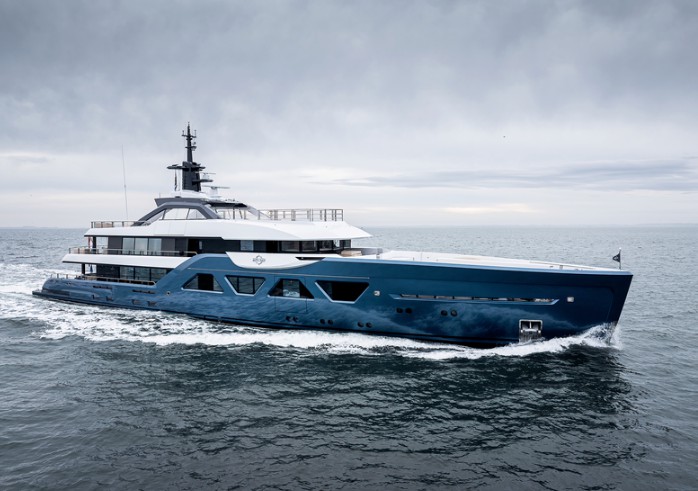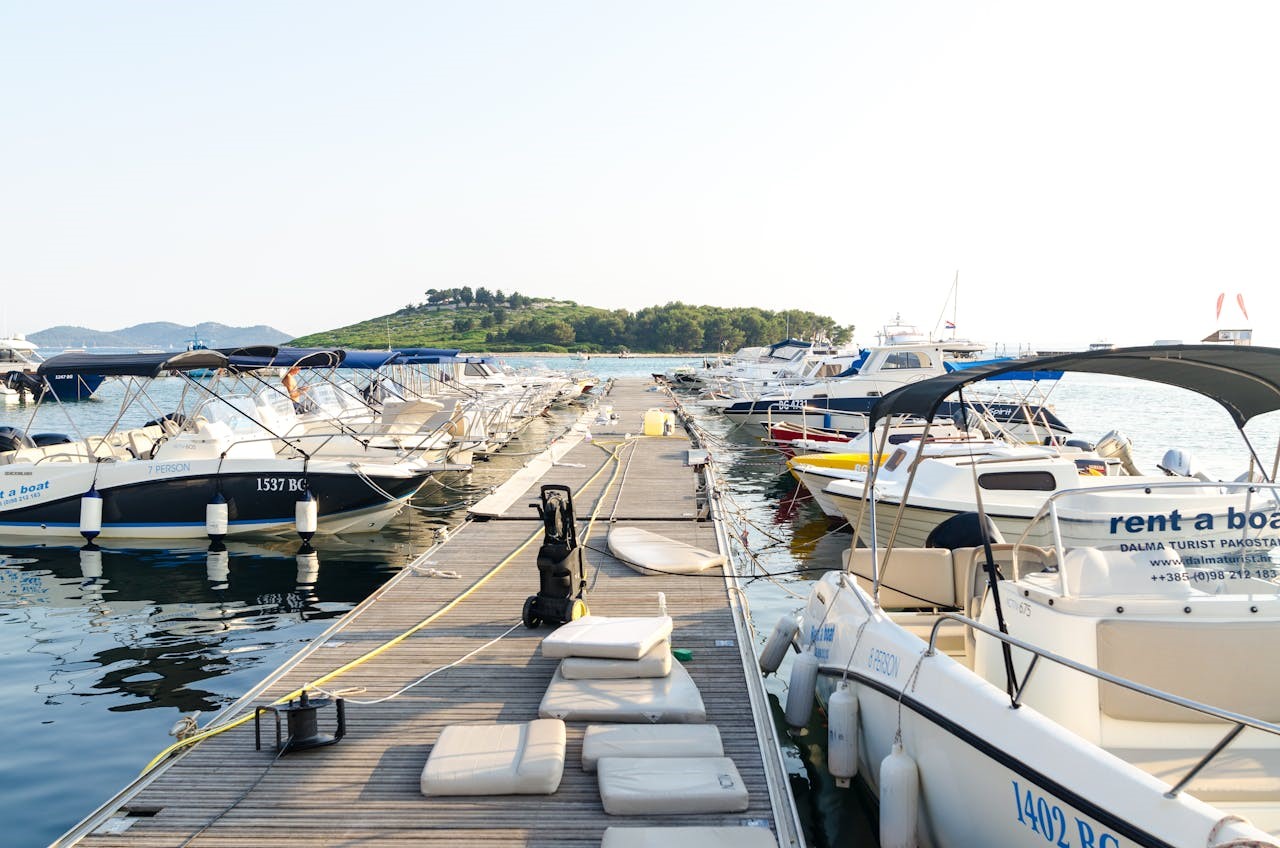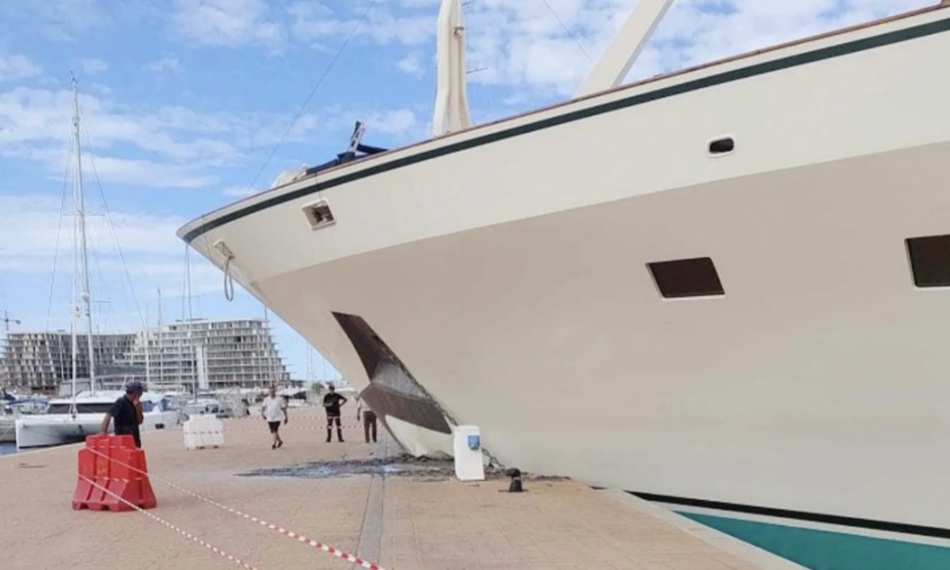As a yacht captain, the duty is to be responsible for the safe navigation of all on board. As with any profession, the process of becoming a yacht captain requires a certain amount of hard work. If you are planning to become a captain, then here is all you need to know about becoming a yacht captain.

What are the duties of a yacht captain?
Yacht captains play a vital role in the sailing of a yacht. Their expertise, leadership and decision-making skills are important in ensuring the safe, efficient and smooth operation of a yacht at sea. A yacht captain is responsible for navigating in challenging environments, managing the yacht's team and protecting the lives of the crew and passengers.
Steps to Become a Yacht Captain
The process of becoming a captain is not easy and being a captain requires dedication, seamanship skills and a passion for the sea. If you have always dreamed of becoming a captain, then you can follow the steps below to realize your dream.
Obtain the appropriate licenses and certificates
The first step to becoming a captain is to obtain the appropriate yacht license. As there are many different types of yachts and sailing areas, the licenses and certificates required also vary. Therefore, you need to figure out what type of yacht captain you want to be and get different licenses or certificates depending on the type of yacht and the area you are in. Carefully research the specific regulations in your location to ensure that you meet the requirements needed to become a captain, including completing a boat navigation safety course, successfully passing an exam, and gaining the necessary practical experience.
Gain crew experience
It is important to gain crew experience before becoming a captain. You can work with an experienced captain and crew team, observe up close their practices and insights into the day-to-day maintenance and operation of a yacht, and learn from experienced and professional crew members in order to gain hands-on experience in yacht sailing, including navigating, hands-on sailing, and safety procedures.
Complete the training and get certified
If you want to become a captain quickly, then you need to actively complete the appropriate training and certification programs. Certification programs include multiple areas of navigation, emergency response, maritime regulations, and more. Completing these programs will not only broaden the boundaries of your knowledge, but it will also demonstrate your commitment to safety and professionalism for your fast track to becoming a captain.
Learn Nautical Skills
Nautical skills are vital for every captain. You need to learn how to read charts, plan routes, and learn to navigate in different weather conditions to ensure the safety of your yacht's passengers and crew. In addition to this, you need to familiarize yourself with and learn to use navigational instruments such as GPS and radar, and learn to observe tides, currents, and any other natural phenomena that could potentially affect your navigation.
Familiarize yourself with the laws and regulations of the sea
To become a skipper, you must familiarize yourself with and tame the local marine laws and regulations, familiarize yourself with and understand the speed limits, right of way rules, and the requirements for the use of safety equipment for yacht navigation. You should always pay attention to and keep abreast of the relevant laws and regulations, so that every voyage will be legal, safe and reliable.
Skills required to become a captain
Being a skipper is not just about driving a yacht, but also about having many different skills, including communication, decision-making, navigation and team management. These skills will be explored together below:
Strong communication skills
Strong communication skills are essential to becoming a captain. When interacting with your crew, you will need to clearly communicate your requirements and messages to them, making sure that everyone understands them. On a day-to-day basis, you will often need to interact with passengers and answer various questions for them, so having strong communication skills is vital.
Excellent decision-making skills
When sailing a yacht, the conditions at sea can change rapidly, and as a skipper you need to be able to assess the situation and make decisions quickly. Whether it's bad weather or unexpected mechanical problems, you must be able to react quickly and make informed choices. Every decision you make affects the safety of the people on board.
Strong Navigation Skills
Navigational skills are among the most important skills a captain needs to have. As a captain, you need to be familiar with navigational equipment such as charts, maps, and navigational instruments in order to navigate safely and accurately to your destination at sea. It is also important to know the rules of navigation to avoid collisions at sea.
Team Management Skills
As a captain, you will be responsible for managing the team on board the yacht. Therefore, you will need to have strong leadership and management skills to motivate your team and make them work efficiently on the yacht.







 Leave the comment
Leave the comment









